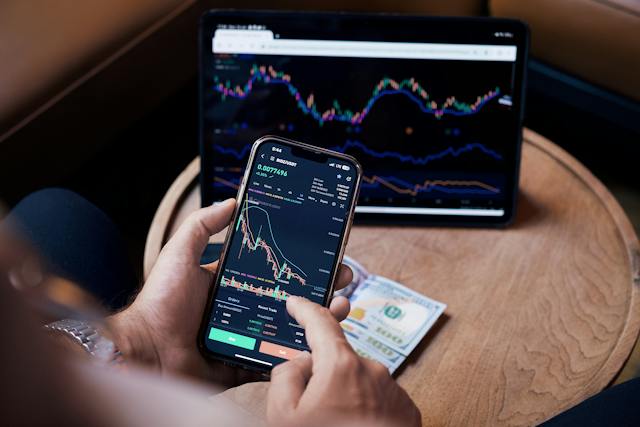1. Diversify your investments. Investing in different areas reduces the risk of losing your money if one market or sector is affected by geopolitical conflicts.
2. Consider investing in alternative assets such as gold, silver, cryptocurrencies, and other commodities that are not impacted by political events or currency fluctuations.
3. Keep up to date on market news and economic data related to the regions and countries affected by geopolitical conflict. This will help you understand the potential risks of investing in those markets and make decisions accordingly.
4. Monitor changes in trade policy from countries involved in the conflict, as this can have an impact on global markets. Investing with this kind of knowledge can help protect your finances during a geopolitical conflict.
5. Minimize investments in volatile stocks from companies located in countries that may be directly affected by a geopolitical conflict or those that rely heavily on exports from those countries.
Geopolitical tensions can have a significant impact on global financial markets. With the ongoing conflict between Israel and Hamas, and the potential involvement of Western allies, such as the United States, it’s essential to safeguard your finances from potential economic impacts. This guide provides practical steps to protect your assets during times of uncertainty.
1. Diversify Your Portfolio:
- Why: Spreading your investments across various asset classes can help mitigate risks.
- How: Consider a mix of stocks, bonds, real estate, and alternative investments to reduce vulnerability to market fluctuations.
2. Invest in Safe Havens:
- Why: Safe-haven assets tend to perform well during geopolitical crises.
- How: Allocate a portion of your portfolio to assets like gold, U.S. Treasuries, and Swiss francs that traditionally retain value during turbulent times.
3. Stay Informed:
- Why: Knowledge is power. Stay updated on geopolitical developments and their potential impact on financial markets.
- How: Regularly follow reputable news sources and consider subscribing to financial newsletters or hiring a financial advisor.
4. Build an Emergency Fund:
- Why: An emergency fund provides a financial cushion in case of unexpected disruptions.
- How: Set aside three to six months’ worth of living expenses in a liquid, easily accessible account.
5. Review Your Insurance:
- Why: Ensure your insurance policies adequately cover potential risks.
- How: Review your health, life, property, and investment insurance to confirm they provide sufficient coverage during times of crisis.
6. Assess Your Debt Situation:
- Why: Reducing high-interest debt can improve your financial resilience.
- How: Create a plan to pay off high-interest debts and avoid accumulating more during uncertain times.
7. Consider Currency Diversification:
- Why: Currency values can fluctuate during geopolitical crises.
- How: Hold a portion of your assets in currencies from stable, strong economies to hedge against currency devaluation.
8. Avoid Emotional Decisions:
- Why: Emotional reactions to market volatility can lead to poor financial decisions.
- How: Stick to your long-term investment strategy and avoid impulsive buying or selling.
9. Revisit Your Retirement Plan:
- Why: Geopolitical events can impact retirement savings.
- How: Consult a financial advisor to assess your retirement plan’s resilience and make adjustments as needed.
10. Seek Professional Guidance:
- Why: Financial advisors can provide personalized strategies based on your specific situation.
- How: Engage a qualified financial advisor to create a customized financial plan to navigate uncertain times.
Conclusion: While geopolitical conflicts like the one between Israel and Hamas can create financial uncertainty, proactive measures can help protect your assets and financial well-being. Diversification, staying informed, and seeking professional advice are key to safeguarding your finances during turbulent times. Remember that preparation is your best defense against potential economic impacts.
FAQs (Frequently Asked Questions)
- What is the current situation in the Middle East conflict?
- Answer: The Middle East conflict involves tensions between Israel, Hamas, and potentially other allies. It has geopolitical and economic implications.
- Why do conflicts in the Middle East affect global financial markets?
- Answer: The region is a major oil producer, and disruptions can lead to oil price spikes, impacting global economies.
- How do rising oil prices affect the average person’s finances?
- Answer: Rising oil prices can result in increased fuel costs, affecting transportation, energy bills, and the prices of goods.
- What are safe-haven assets, and why are they important during geopolitical conflicts?
- Answer: Safe-haven assets like gold and U.S. Treasuries tend to retain value during crises, providing stability in investment portfolios.
- How can diversification protect my investments during uncertain times?
- Answer: Diversifying your investments across various asset classes can reduce risk, as different assets respond differently to market changes.
- What is the role of currency diversification in safeguarding finances?
- Answer: Holding multiple currencies can hedge against currency devaluation during geopolitical turmoil.
- Why is staying informed crucial for financial protection during conflicts?
- Answer: Being aware of geopolitical developments helps you make informed financial decisions and adapt your strategy.
- What steps can I take to build a strong emergency fund?
- Answer: Allocate a portion of your income to savings regularly and aim to accumulate three to six months’ worth of living expenses.
- How does debt impact financial resilience during crises?
- Answer: High-interest debt can strain finances. Reducing debt and avoiding further accumulation can improve financial stability.
- Why is it important to avoid emotional decisions in investing during uncertain times?
- Answer: Emotional reactions to market volatility can lead to impulsive decisions that may not align with your long-term financial goals.
Tags:
- Middle East conflict
- Geopolitical tensions
- Oil prices
- Safe-haven assets
- Diversification
- Currency diversification
- Emergency fund
- High-interest debt
- Financial resilience
- Informed decision-making










